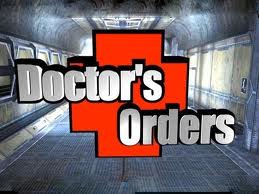| |
OB MEDICAL MALPRACTICE RISK

10 hour webinar series. Elizabeth "Beth" Scott MD's Webinar
Series on High Risk OB

Elizabeth Z. Scott, MD |
Dr. Scott is a board certified Obstetrician
Gynecologist who has lived and practiced in the
South Bay for over 9 years. She received her
Bachelors degree, Cum Laude from Immaculate Heart
College, Los Angeles. She is a graduate of Creighton
University School of Medicine, Omaha, Nebraska,
where she became a member of the prestigious Alpha
Omega Alpha Honors Medical Society. Dr. Scott
completed her internship at UCLA Cedar Sinai Medical
Center, Los Angeles, California, and her residency
at LSU, New Orleans, Louisiana.
Dr. Scott is a past Chief of the Department of OB/GYN
at Paradise Valley Hospital and she is an expert
gynecological surgeon. She is a certified user of
the Da Vinci robotic system for minimally invasive
surgery.
Dr. Scott decided on a career in obstetrics and
gynecology because she loves participating in
bringing new life into the world. Her special
interest includes caring for women in all aspects of
gynecology and she believe in helping patients
through their health challenges in a caring manner,
minimizing pain and recovery time.
|
This 10 part CME Series focuses on helping practicing Ob-GYN
Physicians to prevent poor outcomes in obstetrics, and as a
result to reduce their potential for medical malpractice claims.
- Optimizing Care of the Gestational Diabetic
This lecture covers the main challenges in caring for the
diabetic gravida, from identifying patients at risk of
developing gestational diabetics, through the process of
diagnosis, medical management, improving patient compliance
with the plan of care, monitoring and finally delivery.
- Stillbirth - Can it be prevented?
This lecture covers the common causes of late intrauterine
fetal demise, and provides strategies for identifying
patient who are at risk. Management of the maternal and
fetal conditions that often precede IUFD are addressed.
Effective communication with and caring for the patient who
has experienced a late pregnancy loss are also covered.
- Managing Labor to Optimize Outcomes
This lecture covers When to admit and when to wait, when is
induction of labor appropriate?, active vs. expectant
management of labor, Interpreting the fetal heart rate
tracing, The Friedman curve – does it still apply?,
documenting the labor process, communicating with the L&D
team, choosing the mode of delivery: spontaneous, operative
vaginal or cesarean.
- Cardiovascular Disease in Pregnancy – Preventing
Maternal Death
While maternal deaths from hemorrhage, infection and
Hypertensive disorders of pregnancy are all on the decrease,
cardiovascular disease has continued to increase as a cause
of maternal mortality. This lecture addresses the
identification, care and delivery of the gravida with
cardiovascular disease, including when to continue their
care, and when it is appropriate to transfer their care to a
Perinatologist.
- Shoulder Dystocia
Shoulder dystocia remains a frequent cause of obstetric
malpractice claims. This lecture covers the risk factors for
shoulder dystocia: Is it possible to predict? The five
literature-supported risk factors for shoulder dystocia are
each discussed. When is it never safe to perform an
operative vaginal delivery? How to document the shoulder
dystocia once it has occurred. Is there early pediatric care
for brachial plexus injury?, and when is it appropriate to
provide this information to the parents of an infant with
this type of injury?
- Hypertensive Disorders of Pregnancy
Hypertensive disease in pregnancy remains a major cause of
poor obstetric outcome, both for the mother and her fetus.
This lecture addresses the current diagnostic criteria for
hypertensive disorders, identifying patients who are at risk
for developing these disorders, care of the hypertensive
gravida, management of both common and uncommon
complications of these disorders, and the documentation and
communication necessary to improve care and protect the
physician from litigation.
- Preparation for and Response to Obstetrical Hemorrhage
Hemorrhage remains the major cause of obstetric morbidity
and mortality. This lecture covers the most common errors
made by the obstetrician in identifying and treating
obstetric hemorrhage. It outlines the California Maternal
Quality Care Collaborative (CMQCC) OB Hemorrhage care
Guidelines, and provides guidance for working with your
hospital toward implementing a systems approach to OB
hemorrhage.
- Communication on the Labor Deck
Communication errors are a leading cause of preventable poor
obstetric outcomes. This lecture covers the skills need to
interact with office staff, Labor and delivery nurses and
other physicians, in order to reduce errors. Communication
includes charting, and pitfalls of documentation that
commonly lead to errors in patient care as well as
litigation are addressed.
- Electronic Fetal Monitoring – Can EFM certification
save you?
The validity of EFM has been challenged by researchers and
clinicians as strongly as it is touted by plaintiff's
attorneys. Electronic monitoring is ubiquitous and is here
to stay. This lecture covers the current NICHD nomenclature
for interpreting EFM's, communication pitfalls between the
obstetrician and the hospital staff, and how the EFM should
influence decisions on delivery, and the role of EFM
certification in enhancing communication, preventing errors,
and protecting the physician.
- Risk Management for the Obstetrician: an overview
|
| |
| Are you utilizing the best procedures
to proactively protect both your patients and your practice? |
 |
| |
|
pre-register |
| |
 |
| Is your staff following the ideals of ob/gyn
to ensure patient safety? Do they follow your orders? |
| |
|
Home |
| |
|
| |
Webinar, Evening division at 8 PM CST, 9 PM EST, Wednesday nights.
Webinar, Lunch division at Noon, CST, 1:00 PM, EST,
Wednesdays ..
for
physicians - 30 presentations in our initial offering. The
evening webinar is the same as the lunch webinar offered on the
same date. Interested individuals are encouraged to
pre-register for the series and you will be notified of our
exact schedule. Please indicate your area of specialization or your
current interest so we can customize future presentation to be
"timely" topics to truly meet your needs.
|
|



